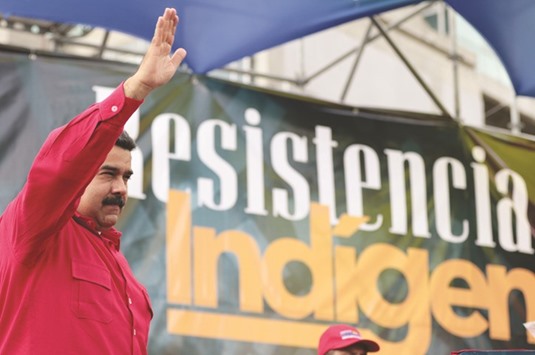Venezuelan President Nicolas Maduro can pass his 2017 budget without the approval of the opposition-majority legislature, the Supreme Court ruled, triggering an outcry from the leftist leader’s opponents.
Maduro and the National Assembly have been at each other’s throats since the centre-right opposition took control of the legislature in January, ending the left’s 17-year monopoly on power. Lawmakers accuse the president of stacking the Supreme Court with allies in the dying hours of the previous legislative session, then using the court to hamstring the new National Assembly. In the latest spat, the Supreme Court ruled Maduro — the political heir to late president Hugo Chavez (1999-13) — can bypass the legislature and have the court itself ratify the budget as a decree.
The court said the ruling aimed to “maintain the functioning of the state, the guarantee of fundamental rights and constitutional order.”
The head of the legislative finance committee, opposition lawmaker Jose Guerra, immediately called on domestic and foreign banks to withhold all financing for the government, accusing it of breaking the law.
Maduro said he would issue his budget by decree today, “to guarantee the rights of the people.” “The National Assembly is in contempt of court, lawless, insurgent,” he said in a speech to supporters. “I consulted the Supreme Court as I must as head of state, because the budget has to be approved.” Now that the court has ruled, “I’m obliged to comply,” he said. Economic analysts warned the ruling would only generate more mistrust of Venezuela, which is already struggling to get to grips with a crushing economic crisis.
“It will be perceived badly by the markets, and that’s going to affect Venezuela’s sovereign risk level, which is already one of the highest in the world,” said Venezuelan economist Jesus Casique.

Venezuela President Nicolas Maduro addresses a rally in Caracas, Venezuela.
